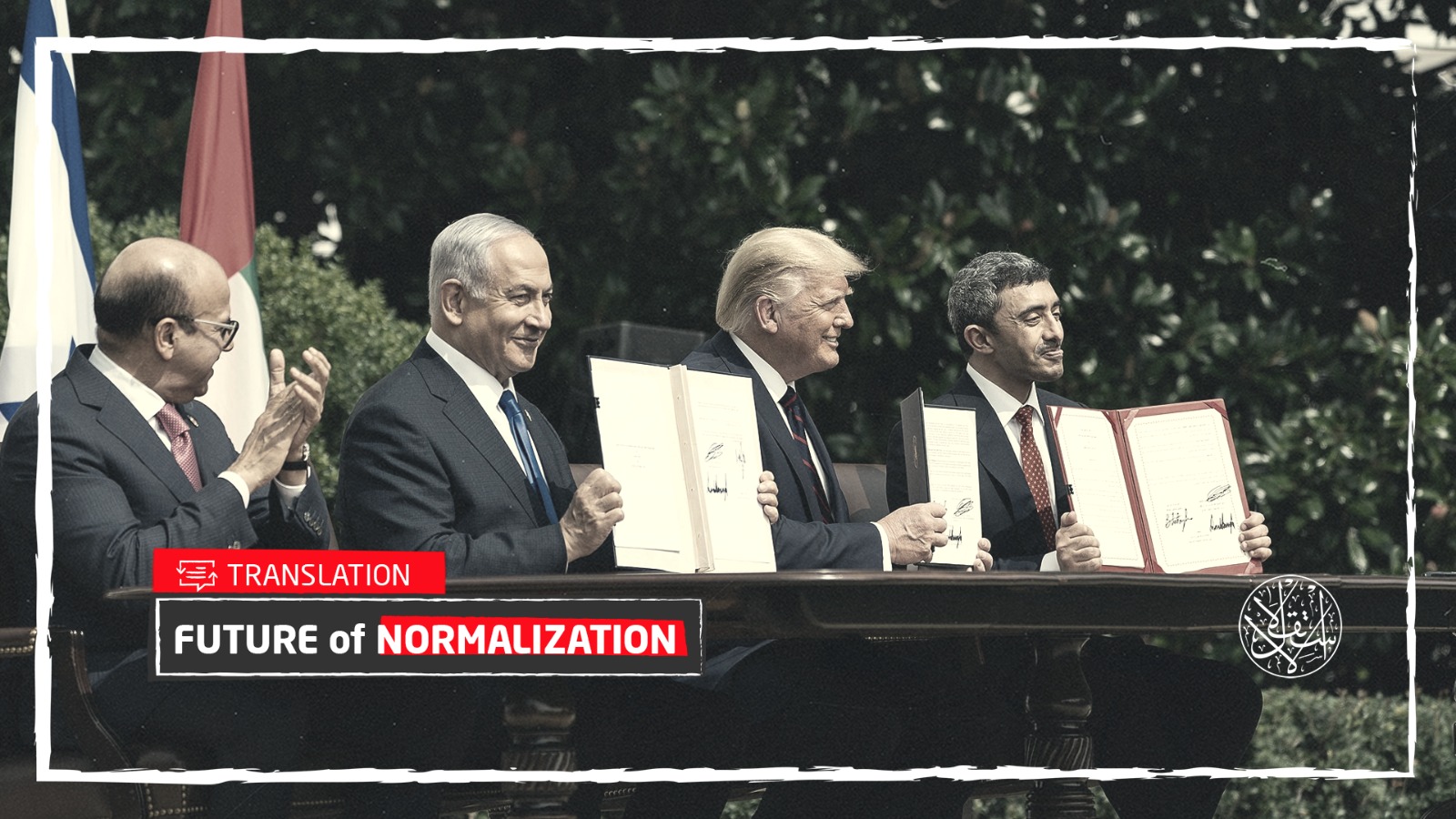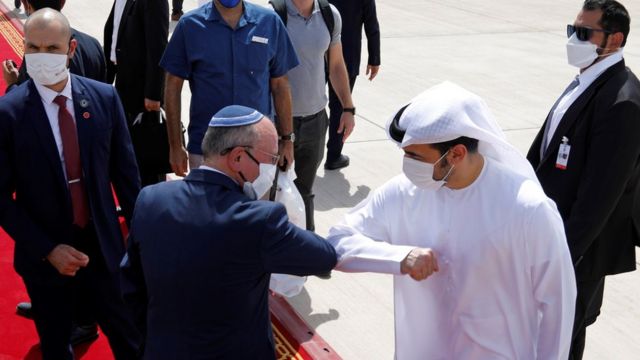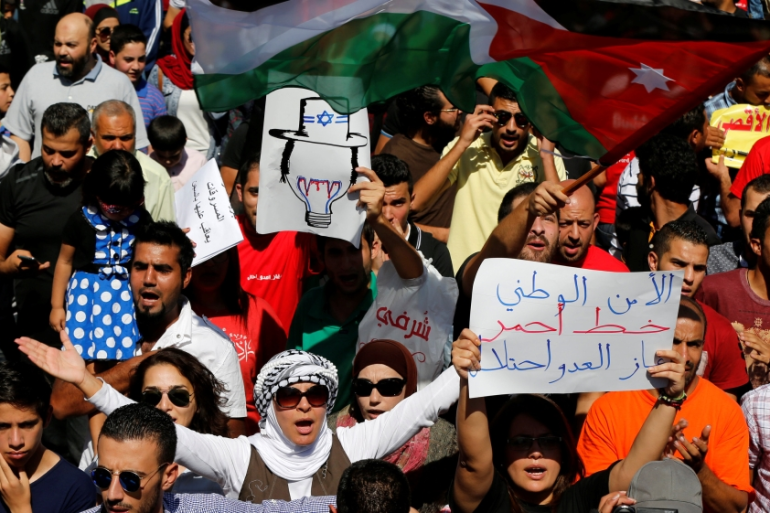What Has ‘Israel’ Achieved After a Year of Normalization Agreements With Arab Countries?

A year after the recent Arab normalization agreements with “Israel,” fears loom over Abu Dhabi’s exit from the alliance with Tel Aviv due to U.S. policy changes towards Iran.
The website of the Hebrew Channel 7 (Arutz Sheva) indicated that a year after its signing on September 15, 2020, “two of the agreements became particularly hot, with the UAE and Bahrain, which led to the mutual tourism boom.”
Hot Agreements
The site indicated that significant economic progress has already been made in Dubai and Abu Dhabi and that “the Gulf position is already deep in Israel, and in the security field progress has been made, most of which is still far from the public’s eyes, while the media in these countries deals with Israel in a more sympathetic manner.”
According to the Israeli Chamber of Commerce, the UAE has become one of “Israel’s” twenty largest trading partners in the world.
As for Morocco, the situation is relatively good and progressing due to the expansion and prosperity of tourism, and the commercial aspect between them is also flourishing, but the embassies are yet to be opened.
While Sudan, which also signed the normalization agreement on October 23, 2020, the internal situation prevents it from controlling this file to a large extent.
Major General (res.) Yaakov Amidror, who was the chief of national security staff and head of the research department in the Israeli army, says: “The possibilities of Israel’s relations in the Abraham Accords are limitless, you have to constantly think about what you should do.”
He added, “With the UAE, these relations are better, and there is a lot of joint activity, with Bahrain it started and has very high potential, and with Morocco we are on the right path, but Sudan is a country that suffers from more internal problems, so it will be more difficult.”
He added: “When you develop a relationship with a country, you are constantly trying to improve every time in a different aspect.”

Major General Amidror asked: How do these agreements differ from the peace agreements with Jordan and Egypt? Claiming that, other than the fact that “we do not have common borders with these countries, in Cairo and Amman there is an agreement with the government, but both their peoples are less involved in it.”
In the agreements with the UAE, Bahrain, and Morocco, the peoples are involved greatly, and this greatly strengthens the relations, “the Abraham Accords were actually pushed by the United States.”
He believes that “[Israel] needs to establish relations with other Arab countries, we did that before there was an agreement and there is no reason not to proceed.”
He continued, “We have two main gains. The first is normalization with six Arab countries without the need to reach an agreement with the Palestinians, a condition that many countries of the world used to set.”
While the Egyptians and Jordanians apologized and said that their agreements with “Israel” were based on promises to reach an agreement with the Palestinians, it was very clear in the Abraham Accords that this was not the case.
He continued: “Understanding that the future of relations between Israel and the Arab countries in the region is not in the hands of the Palestinians is very important, and this does not mean that the Palestinian problem should not be addressed at all,” as he put it.
Another gain, from his point of view, is the economic and trade benefits from these relations, as well as the prospects for improved security cooperation.

The Palestinian Cause
The Hebrew website pointed out that former Knesset member Ksenia Svetlova, director of the program for relations between “Israel” and the Middle East at the Mitvim Institute, sees the first year of the Abraham Accords as a great success.
She says: “Despite COVID-19, tens of thousands of Israelis visited the Emirates and thousands visited Morocco, and new and regular airlines were opened, and countries appointed ambassadors to them in Israel.”
She explains that “in Morocco, this is a bit late, but there is talk that it will take place after weeks to a few months, but there is closer cooperation between research institutes and universities in the social and economic field, and there were many events during the year 2020.”
However, she believes, the Palestinian issue—whether it is obscured or present in “Israel’s” relations with the countries with which relations have been normalized—in practice has a certain effect.
For example, during Operation Gatekeeper (the aggression on Gaza in May 2021), there were voices in the UAE and Bahrain that were very aggressive towards “Israel,” she said.
She hints that the Palestinian issue has not gone anywhere, and it may be right to include this issue in some way in the normalization agreements as well.
She concluded: “We are a little impressed by the sympathetic voices of our support on social media from the Gulf side, the question is whether this is the opinion of the majority in their countries.”
She added, “From the conversations I have had with people in the Gulf states, this is a minority because the majority still sympathize with the Palestinians and there is support for the BDS movement in the Emirates, something we have not witnessed before.”
In turn, political analyst Nitsan Keidar asked: “Will the U.S. administration work to help Israel establish more of these relations? This is a big question that Israel is asking.”
He says, “In any case, efforts are continuing to expand the Abraham Accords despite the fact that one of its main partners, Benjamin Netanyahu [former prime minister] is currently not active in this arena due to the fact that he is not part of the government.”
He adds: “The current government should give up some of its dignity and consult with [the previous government], the normalization of the next important relations can progress more quickly—even if part of the credit goes to those who worked on this normalization in the beginning.”
The analyst believes that Netanyahu’s international relations “are still capable of helping to continue linking and communicating with other Arab countries.”











